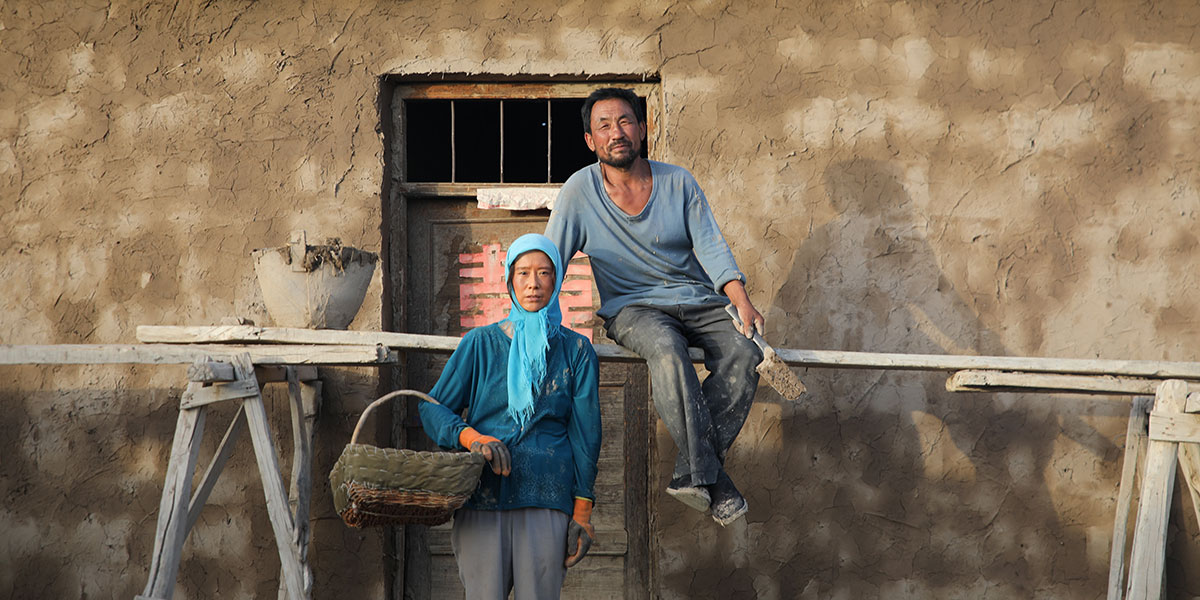|
|
||
|
Pro Tools
FILMFESTIVALS | 24/7 world wide coverageWelcome ! Enjoy the best of both worlds: Film & Festival News, exploring the best of the film festivals community. Launched in 1995, relentlessly connecting films to festivals, documenting and promoting festivals worldwide. Working on an upgrade soon. For collaboration, editorial contributions, or publicity, please send us an email here. User login |
Toronto International Film Festival 2022
The growing audience of major and lesser-known film festivals certainly does not signal the end of the cinema. It mirrors the growing number of movies which are produced and the social and commercial attractions of film festivals. Though one should keep in mind that over a twenty-year period through 2018 only about four percent of independent films in the Unites States generated a profit and that just ten percent were ever shown in theaters. The relative decline of independent films reflects a shift in the market orientation of film festivals. A long time ago, film festivals were the place for art houses and distributors to find productions that could potentially make it in Hollywood. When the New York Film Festival was set up sixty years ago. showing a Hollywood feature would have violated the selection criteria. With the rise of cable television, streaming platforms and the general shift to small screen exposure, new segments have entered the buying market. Today, major and minor streaming companies and distributors are probably the most important component of international film festivals and markets. Movie making is alive, but a significant portion of its audience has migrated to the home audience. Except for blockbusters, few make it to theatres. Seeing these mega films in theaters seems to have little appeal for younger audiences. Overall box office returns have declined and not returned to pre-pandemic levels. Despite its alleged economic problems and a significant decline of subscribers, Netflix has continued its dominant position as an active partner of film festivals and buyer of films. Toronto International Film Festival’s 2022 return to in-person screenings after a two-year break was welcomed by audiences and participants longing for TIFF’s comprehensive diversified program. After the limited online screenings available during the pandemic, the 2022 selections satisfied audiences seeking any genre. From September 7 through 18 2022, TIFF offered options for anyone interested in new films from all corners of the universe, productions made by members of minority groups or different sexual orientations, films by women directors, and TIFF’s selection of the best films from other major film festivals. The 2022 program included productions ranging from LOUIS ARMSTRONG’S BLACK & BLUES, a music documentary by Sacha Jenkins, Steven Spielberg’s alter ego self-portrait THE FABELMANS, and THE WOMAN KING by Gina Prince-Bythewood about an army of female warriors in 18th century Africa protecting their kingdom. TIFF 2022 included 201 feature and 49 short films. There were 24 films available to the public through TIFF’s digital platform. 1,540 members of the press were accredited and 3,945 industry delegates. Among the 2022 awards were the Network for the Promotion of Asian Cinema (NETPAC) prize for SWEET AS by Jub Clerc, the International Federation of Film Critics FIPRESCI Prize for Basil Khalil’s GAZA WEEKEND, the Amplify Voices Award for Best Canadian Feature film for KILL A TIGER by Nisha Pahuja, the Changemaker Award to SOMETHING YOU SAID LAST NIGHT by Luis De Filippis, and the TIFF 2022 People’s Choice Documentary Award to Hubert Davis for BLACK ICE. Support for TIFF was received from their lead sponsor Bell, the major sponsors RBC, Via and Bulgari, as well as official Ontario and Toronto agencies and Telefilm Canada.
In her first film as a writer and director, Selcen Ergun portrays the experiences of a young nurse posted to an isolated village in the north eastern part of Turkey in SNOW AND THE BEAR. The film depicts the lives of villagers in a never-ending winter and bleak dark landscape. The prevalent conviction shared by most of the villagers is the threat of bears descending from the forest to their homes. The nurse Asli, played by Merve Dizdar, is from the capital and accepted the mandatory assignment. Her parents opposed her decision because they believed it interfered with Asli’s personal and professional future. Once Asli has moved into the village health center, she starts working with the villagers, raised in a rigid patriarchal structure. An explicit disregard of women and their views prevails and with men continuing to constrain them. The only overt authority is held by small group of soldiers posted there. Asli is not taken seriously because she is a woman and the villagers seeking help frequently do not trust modern medicine. When the roads are closed after freezing, the limited communications of the villagers focus increasingly on the threat of bears and a never-ending winter. Some villagers hold the traditional perspective that the person taking the life of a bear will be cursed and he or a member of his family will be killed by another bear. Bears are also considered an endangered species by the government and anyone killing then faces punishment. When the local butcher and drunkard Hasan goes missing, the elders organize a search party to find him and the presumed killer bear. They assume he was killed and devoured. Asli is excluded from the search party. Selcen Ergun’s story and skills as a director provide a superb perspective on the traditional cultural basis of rural Turkey. Her use of cinematography visual images and intentionally scarce communicative encounters are very close to a perfect ethnographic portrait of the community.
Another outstanding feature of the festival was RETURN TO DUST, a feature which premiered earlier this year at Berlinale. Created by writer-director Li Ruijun, the film follows two people part of a large extended family that make their living in a small agrarian community near Inner Mongolia. They succeed transcending this closed setting, despite the social and economic obstacles they face. Ma and Cao, the principal characters, are forced into a marriage. Their family no longer wants to take care of the disabled Cao with her persistent urinary problems. Ma, a hard working but somehow submissive man, is exploited by his family. Both are beyond the normal age of marriage and the imposed arrangement removes the family’s responsibility for what they consider worthless relatives. Cao mentions in passing that the donkey of the family had a marvelous life compared to hers. Yet the constraints and resentments imposed by the family, corrupt landowners, corrupt officials, and initiatives by governmental agencies to destroy traditional rural structures do not prevent the couple from establishing their own existence. They have no property or tools except for the donkey and their hands. Ma and Cao work hard to build a home with mud bricks made by them, care for the animals they raised, and cope with natural disasters threatening their crops. When Ma is offered an apartment, he is concerned with the lack of space for their animals. The audience slowly realizes the fundamental humanistic dimensions Li Ruijun presents in the evolving story of Cao and Ma, their care for others without any expectation of no compensation, Ma’s request that workers get proper pay from the landowners, the couple’s persistent grounding in nature, and unquestioning attachment to the soil. Love, consideration of others, and moral demeanor remain possible even if the world around us fades away. Superb performances by the two professional actors the director chose for Cao and Ma, the perfectly framed images of their rustic landscapes, and the outstanding script are essential ingredients in this impactful film.
PARIS MEMORIES is a 2022 feature by Alice Winocour with Virginia Efira in the principal role of Mia. Paris is the background, but Mia is the focus. Mia is trying to reconstruct her memories of a mass shooting she survived at a Paris restaurant in November 2015. Her memories are fractured after the first shots were fired. She tries to assemble the few bits and pieces she recalls from what happened to her before and after the terrorist attack. Mia refuses to repress the painful traumatic impact of the event, a path some of the survivors embraced. She tries to reassemble her prior life as a translator but realizes that her past life is over. Mia gets more and more involved in her quest to find out what happened to her during the attack. There are frequent visits to the place of the crime where she encounters a group of other victims meeting there on a regular basis. Some seem to recognize her from the day of the attack. One accuses her of having locked herself up the bathroom preventing others from escaping the killers. In her attempts to recover, Mia grows close to the other victims and helps them cope with their losses. In this highly personalized feature, the audience understands the psychology of the victims and the problems of leading a normal life after significant trauma, a dimension missing from most films about terrorism. The restaurant continues its business as usual, having fired most of the employees who had worked there before the attack. Mia decides to live by herself, ending her relationship with a boyfriend that considers her obsessive craving for the truth to be abnormal. Life cannot continue the way it was before, and she prefers the company of other victims. Mia ends her search when she finds the person who saved her life during the shooting, Assane, a cook who hid with her in a closet. She also enters into a relation with Thomas, a fellow victim shot in the restaurant and whom she met in a hospital room. Claus Mueller, New York filmexchange@gmail.com
.
07.10.2022 | Claus Mueller's blog Cat. : PARIS MEMORIES RETURN TO DUST SNOW AND THE BEAR tiff Toronto International Film Festival Independent FILM FESTIVALS AWARDS
|
LinksThe Bulletin Board > The Bulletin Board Blog Following News Interview with EFM (Berlin) Director
Interview with IFTA Chairman (AFM)
Interview with Cannes Marche du Film Director
Filmfestivals.com dailies live coverage from > Live from India
Useful links for the indies: > Big files transfer
+ SUBSCRIBE to the weekly Newsletter Deals+ Special offers and discounts from filmfestivals.com Selected fun offers
> Bonus Casino
About Claus MuellerThe EditorUser contributions |



























